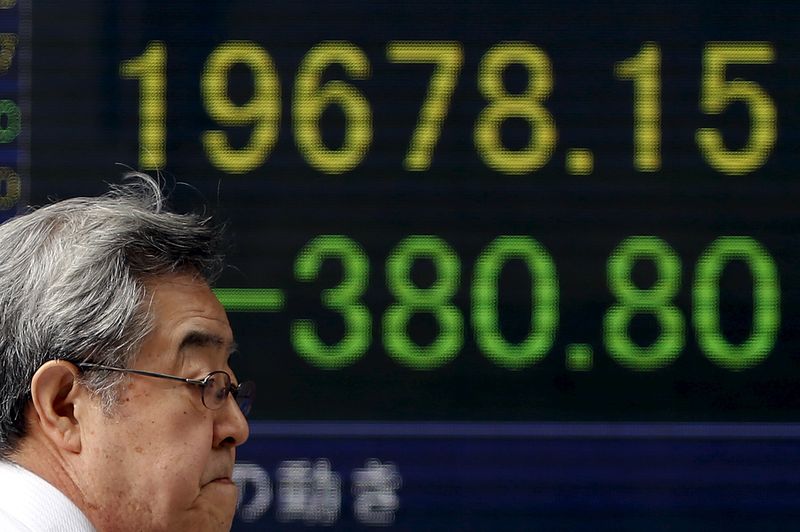This post was originally published on this site
https://i-invdn-com.akamaized.net/news/LYNXMPEB4C07I_M.jpg
Investing.com – Asian stocks were down on Wednesday morning, halting their rally earlier in the week, with investor hopes of a quick economic recovery dimmed by continuous spikes in COVID-19 cases.
Brazilian president Jair Bolsonaro became the latest high-profile figure to contract the virus, and Atlanta Federal Reserve Bank President Raphael Bostic warned on Tuesday that the spike in the number of cases has made business owners “nervous again” and that ‘there is a real sense this might go on longer than we have planned for.”
There are almost 11.8 million COVID-19 cases globally as of July 8, according to Johns Hopkins University data.
Hong Kong’s Hang Seng Index was down 0.06% by 10:28 PM ET (3:28 AM GMT) with the city dealing with a third wave of COVID-19 cases. It reported 14 new cases on Tuesday.
Meanwhile, a proposal to decouple the HKD from the dollar is making its way to U.S. President Donald Trump’s desk for review.
China’s Shanghai Composite fell 0.31% while the Shenzhen Component was down 0.28%.
Japan’s Nikkei 225 was down 0.27%, with Economy Minister Yasutoshi Nishimura refuting on Wednesday the need to declare a new state of emergency, despite the rising number of cases in the country.
South Korea’s KOSPI fell 0.50%.
Down Under, the ASX 200 slid 0.52%, with Melbourne re-imposing lockdown measures to curb a rise of cases in Australia’s second largest city.
“The second wave of infection will see Victorian economic activity fall sharply and it will continue to lag the rest of Australia,” NAB economist Kaixin Owyong told Reuters.
Other investors struck a more positive note, with the U.S. earnings seasons about to start.
“It’s not unusual for stocks to take a breather at this point,” Susan Schmidt, a portfolio manager at Aviva (LON:AV) Investors, told Bloomberg.
“We could see ourselves in a bit of a trading range in the next couple of weeks,” before U.S. earnings season ramps up, she added.


